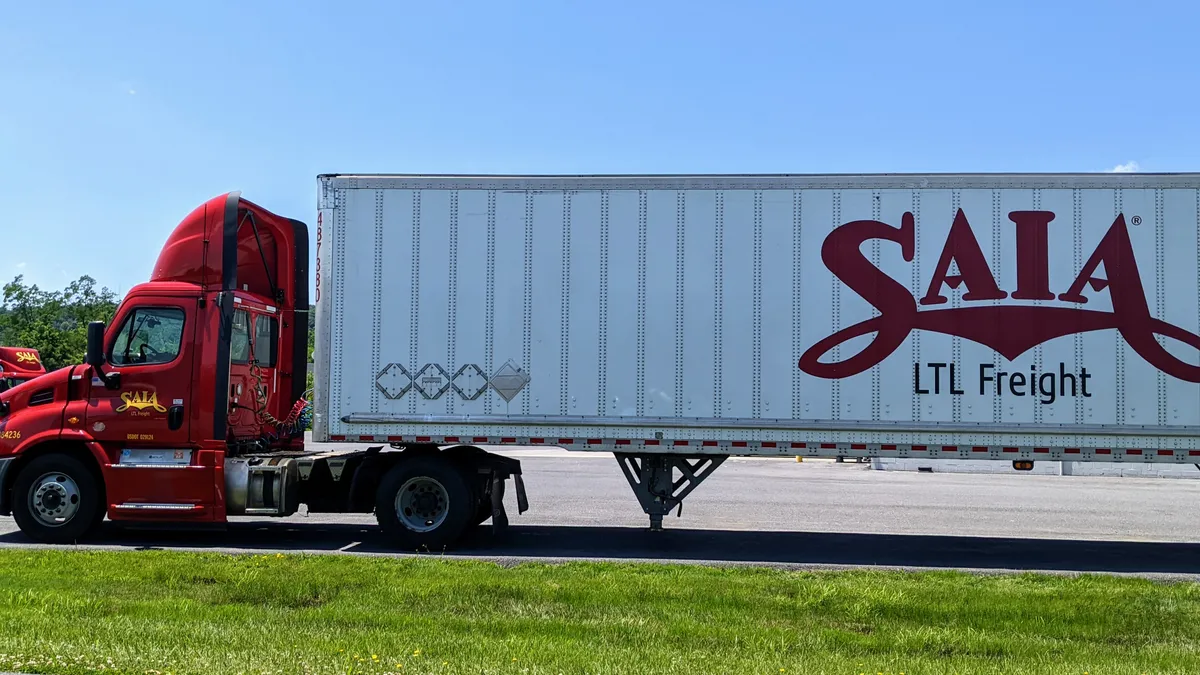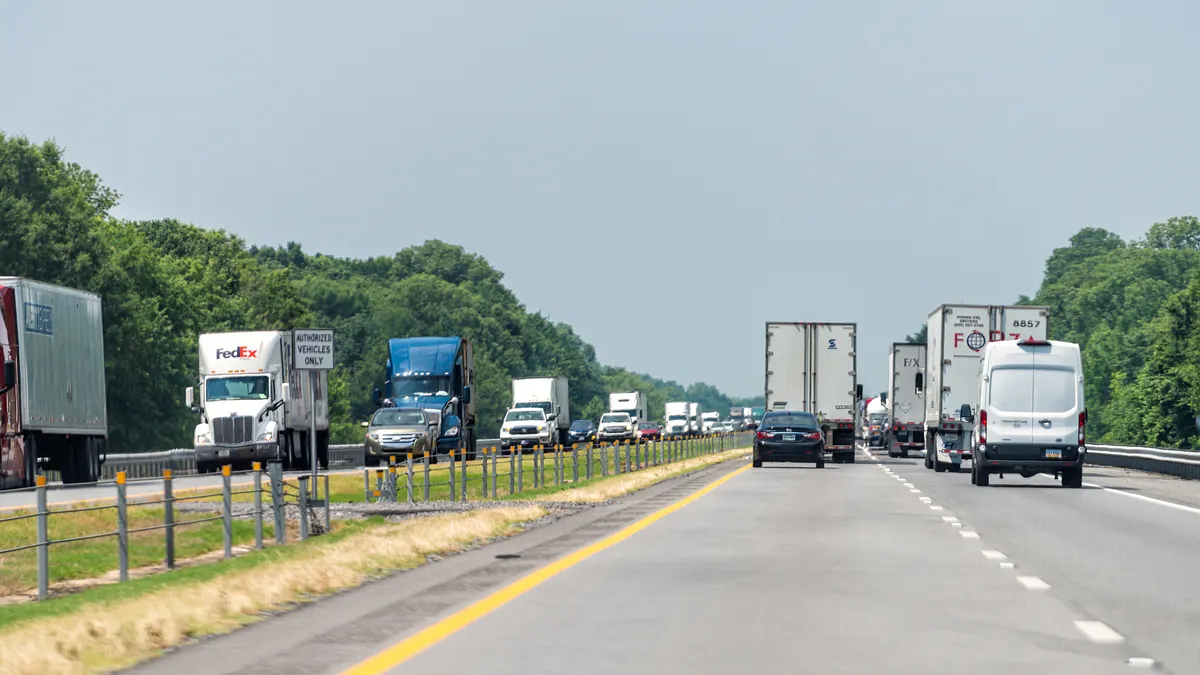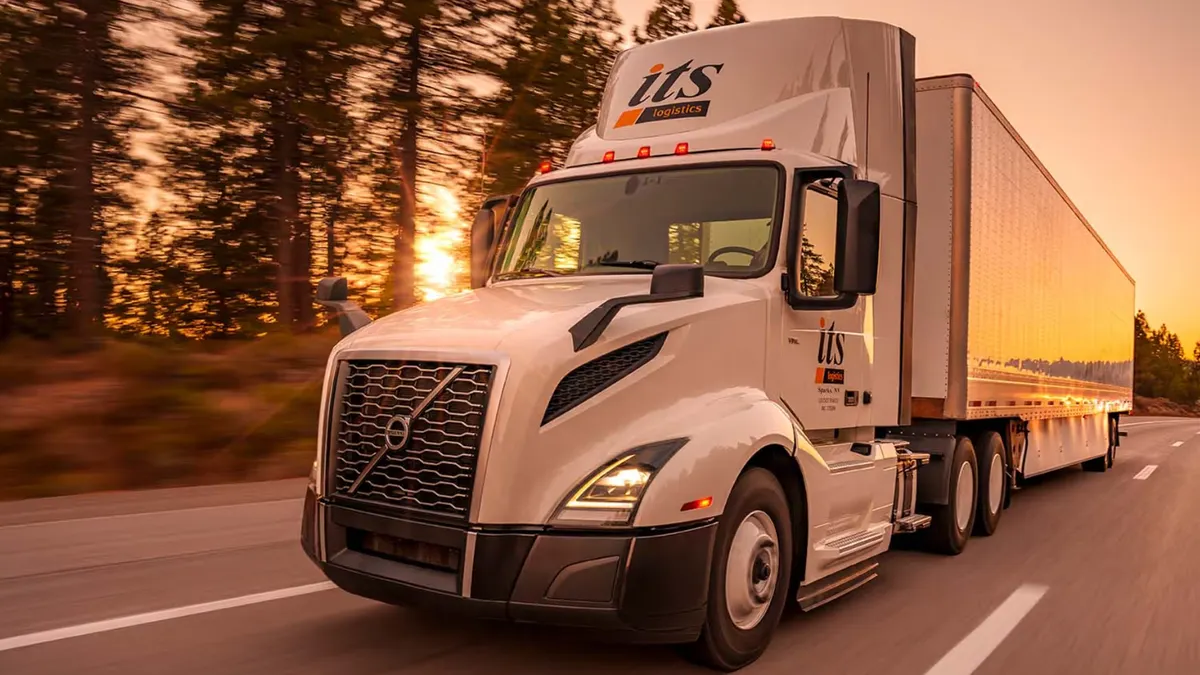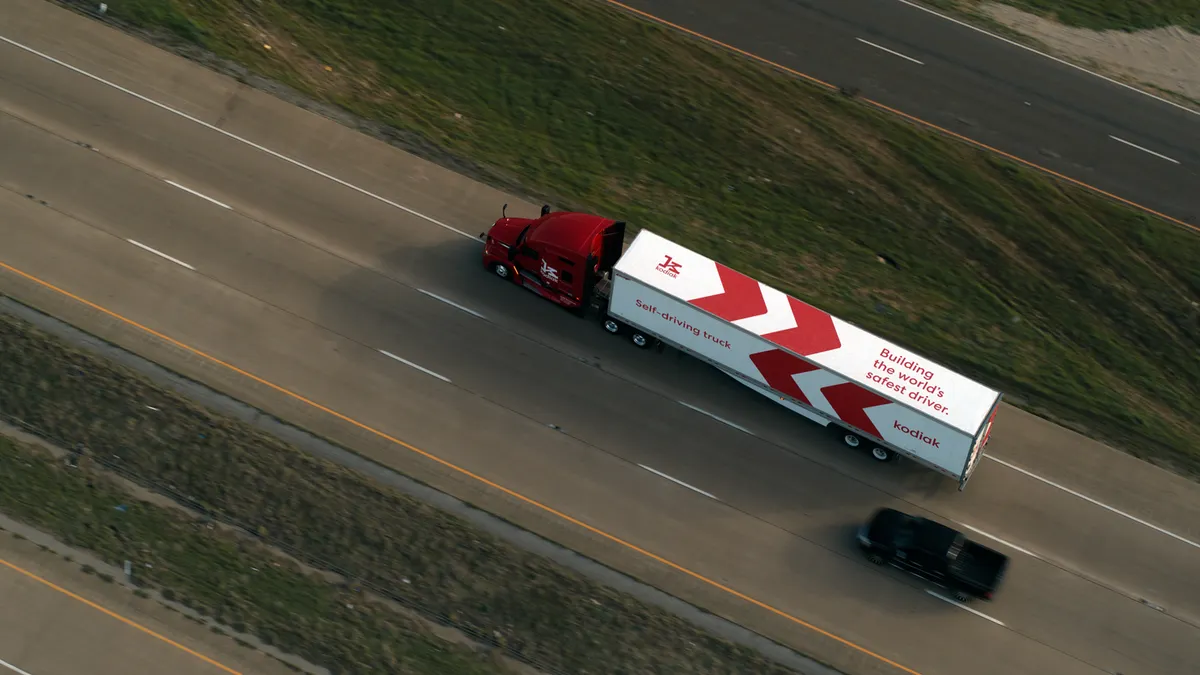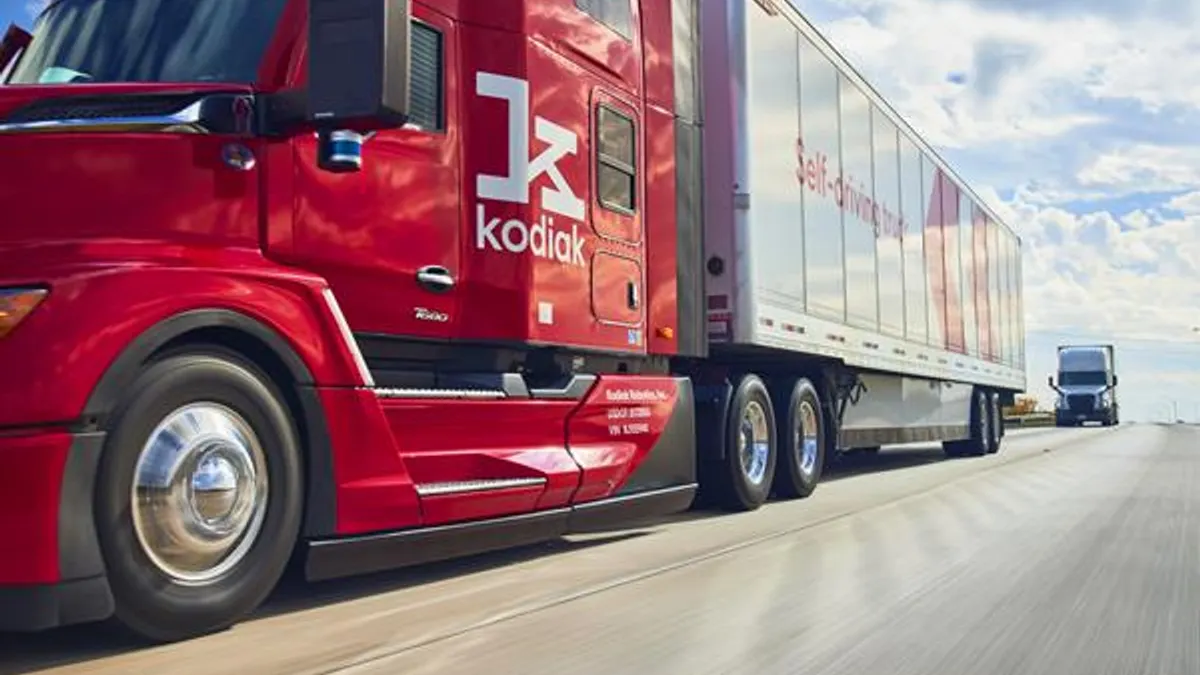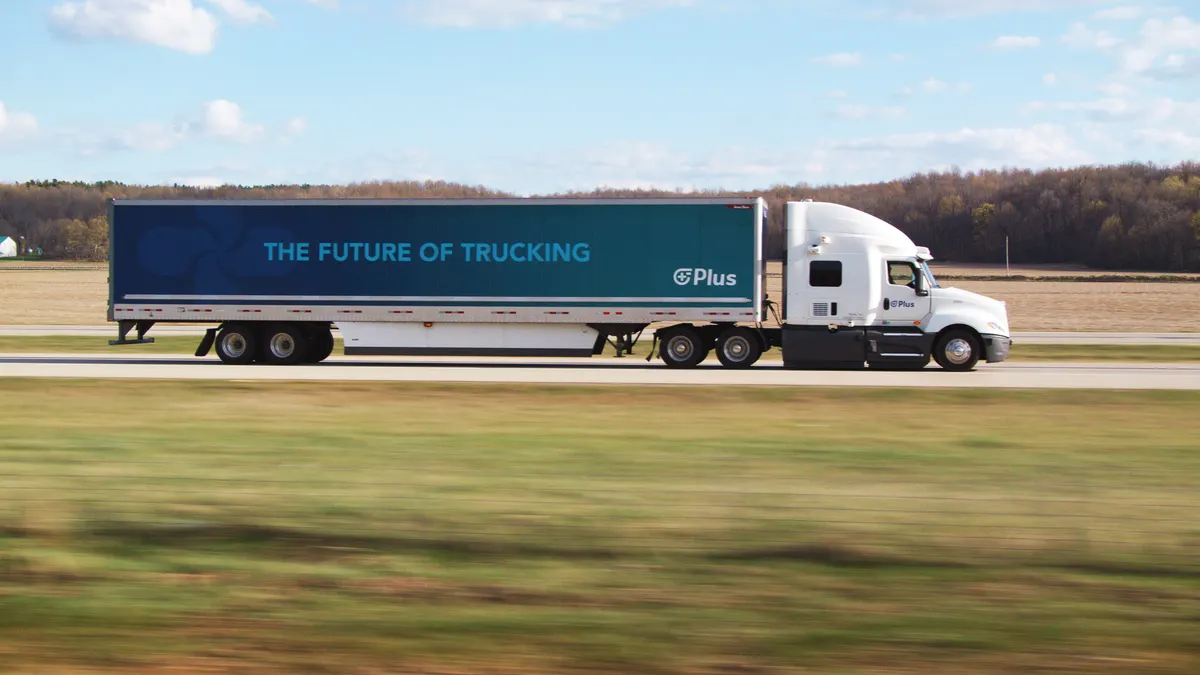With all the technology the transportation industry relies on, trucking companies must protect their data from cybercriminals. According to a study by the University of Maryland, hackers strike every 39 seconds with an average of 2,244 attacks a day.
"Cybersecurity is the protection of data," Jane Jazrawy, co-founder of CarriersEdge, a provider of online driver training programs, told Transport Dive in an interview. "Criminals like to spy on this data to see what they can get out of it."
Fraudsters steal data — confidential customer data, employees’ personal information, cargo details and anything involving freight movement.
"Since the trucking industry is especially vulnerable to cyberattacks, it’s important to do what you can to minimize your risk of being hit," Jazrawy said. "There are two reasons for this vulnerability: Trucking is a high-dollar industry with large amounts of cash or credit available, and a carrier’s IT infrastructure is often older and understaffed."
"Since the trucking industry is especially vulnerable to cyberattacks, it’s important to do what you can to minimize your risk of being hit."

Jane Jazrawy
Co-founder, CarriersEdge
One of the main methods attackers use is phishing, a fraudulent attempt to trick people into giving up their passwords, said Jazrawy. That helps cybercriminals get as much data as possible for the least amount of effort. They could then shut down a victim’s system and ask for an exorbitant amount of money to get it back up and running.
'It will happen to your company'
B-H Transfer Company, headquartered in Sandersville, Georgia, works with a fleet of about 165 independent contractors and 100 company-owned and operated tractors. In 2018, John Wilson, VP of administration, safety and human resources, discovered nobody could get onto the transportation management system.
He soon found out cybercriminals had encrypted their files and wanted several thousand dollars in Bitcoin to release the encryption key. B-H Transfer managed to use its backups and restored the database in half a day.
Six months later, one of the company’s users opened a suspicious email that launched another ransomware attack. A third malware assault occurred in February.

Wilson has learned from his three experiences. B-H Transfer has never been complacent, but now it has a more heightened sense of urgency when weaknesses are identified, said Wilson. Most of the firm's IT support comes from a third-party provider, because it runs a smaller fleet. That third-party provider has a larger staff and deeper knowledge than anyone at B-H Transfer, he said.
Wilson recommended paying attention to the little things — fix any issues you find and then keep doing it over and over.
"I think you have to adopt the mindset that it will happen to your company," Wilson said in an email to Transport Dive. "You have to stay on top of patches and updates. You have to take advantage of training and resources, so you know and understand your vulnerabilities and how to mitigate those risks."
Remote workers need secure data
Before COVID-19, building a resiliency model for an entire workforce working from home for a year was unlikely, Chris Kennedy, CISO and VP of Customer Success at AttackIQ, recently told Transport Dive sister publication CIO Dive. "There was always just more important stuff to do, but here we are."
Trucking employees working from home should use a password manager and take other precautions to avoid a cyberattack and keep up productivity remotely. A recent survey found 71% of CIOs said employees were locked out of systems because of password issues as they pivoted to remote work, and that "negatively impacted productivity" during the pandemic.
When most employees became at-home workers in mid-March due to the pandemic, fleets may not have had time to check on their security. Jazrawy said these workers need a secure connection back to headquarters, either through a virtual private network (VPN) or by using cloud-based security applications that store data.
"I think you have to adopt the mindset that [cyberattacks] will happen to your company."
John Wilson
VP of Administration, Safety and Human Resources, B-H Transfer Company
"Remote employees also need to keep their computers updated," said Jazrawy. "This especially applies to Windows updates, many of which are security-oriented. With these updates, Microsoft is trying to fix the holes open to cyberthreat."
Bill Brown, consultant and retired manager of fleet telematics for Southeastern Freight Lines, cautioned against letting remote workers use flash drives. They might travel between home and the office, retrieving and dispensing information. That’s a good way to spread a computer virus, he told Transport Dive. At Southeastern Freight Lines, when a flash drive is placed in a computer, nothing happens, he said.
How to protect data
Most fleets of any size already have systems in place to protect their servers, database and workstations used by dispatchers, billers, human resource staff, accounting and others, Brown said. Smaller fleets rely on third-party fleet management systems.
When choosing a fleet management system, Brown suggested checking each one’s financial stability by getting a Dun & Bradstreet report. That way, fleets aren’t left without tech help if the platform company files for bankruptcy or withdraws its technology from the market. Several ELDs were revoked after they’d been purchased and installed, leaving trucking companies scrambling to replace them with other brands, said Brown.
Drivers need passwords to log onto their ELDs, creating another potentially vulnerable point of entry for a cyberattacker. Data must be password protected, said Jazrawy, but not by a password that can easily be determined.
A Google search reveals the easiest-to-guess passwords: "123456," "qwerty" and "password". Hackers know this and also phish for important dates, such as birthdays and anniversaries, and pet and family member names. Often they discover people have used the same password multiple times. That makes attacks much easier to carry out.
Writing down passwords on paper leaves people vulnerable to cybercrimes. Humans are terrible at memorizing numerous passwords, Jazrawy said, so the best solution is to use a password manager.
Every carrier, OEM and telematics service provider, along with industry partners such as the Technology and Maintenance Council (TMC) and the National Motor Freight Traffic Association (NMFTA), have ongoing efforts to fight these crimes, Brown said. NMFTA provides a checklist titled, "Cybersecurity Requirements for Telematics Systems."
Motor carriers that belong to the American Trucking Associations (ATA) have access to Fleet Cywatch, a place to report internet crimes and information about potential cyberthreats.
But the success of cybersecurity measures ultimately depends on the end user.
"While there is slow movement towards rectifying a few of [trucking's vulnerabilities] (e.g. newer IT equipment, moving data to the cloud)," Mark Murrell, co-owner of online driver training provider CarriersEdge wrote in a LinkedIn post in May, "it won’t really matter if the company has weak passwords, or the undertrained staff are clicking on the wrong links and opening up their networks to malware and ransomware."



